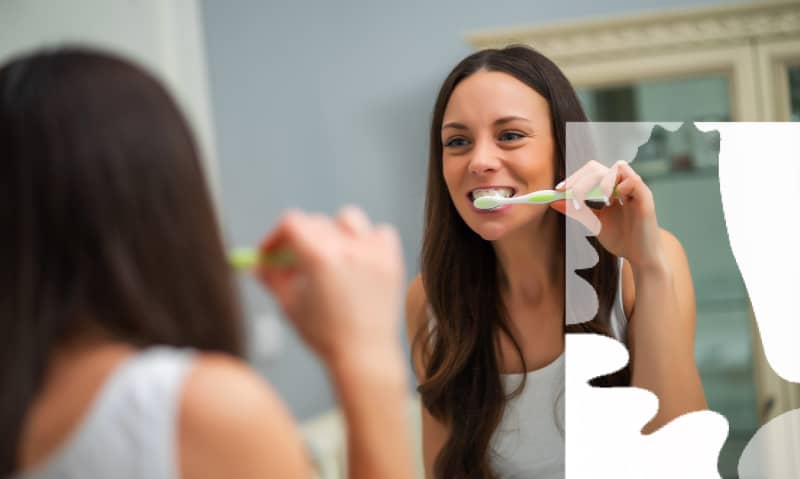How Long After Fluoride Should I Brush My Teeth? And Other Fluoride Treatment Questions

Answers to All Your Fluoride Questions
Fluoride can work wonders for anyone looking for some extra protection for their teeth. That’s why you’ll find it in so many different kinds of toothpaste and mouthwash. However, if you’re looking to take full advantage of everything fluoride has to offer, your best bet is to look into fluoride treatments.
Fluoride treatments are fairly fast and simple and generally do not cause discomfort, but there are a few details you’ll want to be aware of before receiving one. To help you understand the ins and outs of fluoride, we’ve created this guide to answer some of our patients’ most commonly asked questions fluoride and its after care.
What is fluoride?
In spite of its seemingly magical ability to fight tooth decay and protect your teeth, fluoride is just a mineral that naturally occurs in various rocks and soils and even foods, like apples and almonds.
Dentists like to use it to strengthen tooth enamel, stop erosion from acidic foods, and prevent cavities by promoting remineralization.
Fluoride has no scent or flavor, which is part of what makes it so perfect for treating your teeth when they need extra protection. It’s also why it is sometimes added to drinking water.
What is fluoride varnish treatment?
Fluoride treatment is a form of preventive dentistry and involves your dentist applying highly concentrated fluoride varnish directly to your teeth. This treatment is most often used on children to help them avoid cavities and protect their teeth, which are weaker than an adult’s, but it can potentially be beneficial to people of all ages.
The Fluoride Treatment Process
You’ll most likely receive a fluoride treatment when visiting your dentist for your regular exam and cleaning.
Your dentist will most likely discuss your dental health history with you and perform an oral examination before determining whether you’d be a good candidate for fluoride treatment or not. If you’re particularly susceptible to cavities, they’ll most likely give you the OK.
If your dentist decides a fluoride treatment is right for your, they will apply the varnish to your teeth with either a brush, a swab, a mouthwash, or a dental tray
Your dentist will likely give you a few fluoride aftercare rules to follow so your treatment is as effective as possible.
Fluoride Post-Op Care
Proper fluoride after care is fairly simple, but you will want to ensure you follow instructions carefully or you may end up compromising the treatment.
How long until I can eat or drink?
You will need to give the fluoride time to set into your teeth before you eat or drink anything. Your dentist is likely to advise you not to eat or drink for at least 30 minutes after you’ve received your treatment, and they will also likely tell you to avoid certain types of food and drink for around six hours afterward.
What can I eat?
Eating hard or acidic foods too soon after your treatment may make it less effective, so you’ll want to avoid them for at least six hours. However, you can eat soft foods, like applesauce, yogurt, boiled rice, bananas, mashed potatoes, hard-boiled eggs, and more after about 30 minutes.
What can I drink?
You can have a cold drink about 30 minutes after your fluoride treatment, provided that drink doesn’t contain any alcohol. However, you should avoid all hot drinks and alcohol for at least six hours after your treatment or you’ll risk weakening the fluoride’s effectiveness.
When should I brush my teeth?
Another important part of fluoride after care is waiting until the fluoride has had a chance to set in before you brush, floss, or use mouthwash. Make sure to hold off on any oral care for at least six hours after treatment, but do make sure to brush thoroughly once that six hours has passed.
Will I get fluorosis?
Fluorosis is a condition caused by taking in excess fluoride, resulting in brown or white specks on the teeth. However, this condition only occurs in children with developing teeth that have had extended exposure to fluoride. If you have adult teeth, you will not develop fluorosis.
Fluoride Treatments from Valley Dental Clinic
If you’re looking for a family dentist near Wasilla, Alaska, that offers fluoride treatments and much more, Valley Dental Clinic can help. Contact us today to schedule your appointment.